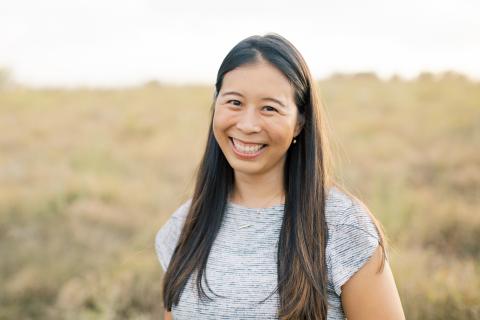
Kristin T. Lee is a primary care physician who writes at the intersection of faith, identity, and solidarity on Substack at The Embers. She reviews books on Instagram @ktlee.writes.
Posts By This Author
Searching for a Faithful Response to My ‘Privileged Otherness’
TO CROSS THE border into Lesotho — a landlocked, mountainous country surrounded entirely by South Africa — my friends and I rented a 4x4 and drove up the icy Sani Pass. We switchbacked up one of the most dangerous roads in the world and almost skidded off the cliff.
Slightly shaken but unscathed, we experienced time stretching as we drove through the pastoral city of Mokhotlong, dotted with thatch-roofed mud-and-stone huts. Herds of sheep, in no hurry to make way, blocked the dirt road.
We walked along the deserted street, admiring handicrafts at a rug shop before popping into a grocery store. I was surprised when a Chinese couple greeted us from behind the counter with a warm, “Ni hao.” As my friends and I spoke with them in rudimentary Mandarin (four of us were Chinese American, the fifth was white American), I learned that they had been living in Mokhotlong for many years, raising a family while running the store. We shared a laugh about the unlikelihood of Chinese people finding one another in these hinterlands and, after buying a couple of sodas, went on our way.
Down the road, we discovered another grocery store, staffed by a Chinese couple from a different province in China. What a wild fluke, I thought, that such an isolated town would have two Chinese-owned markets! I soon learned that it wasn’t a fluke at all — Chinese people are present in virtually every nation in Africa, whether as contracted laborers or as informal migrants. Since July 2008, when I visited Lesotho while living in South Africa for two months, the Chinese population in Africa has increased to more than 1 million, including large populations in South Africa, Madagascar, and Zambia but also scattered throughout smaller communities in South Sudan, Togo, and Senegal.
The awe of meeting Chinese people in rural Africa prompted me to examine my family’s migration story and my sense of otherness in the U.S. My parents left Hong Kong to come to the U.S. for college, planting roots here for the freedom and opportunities that didn’t exist back home. Shortly before I was born, they became Christians through a Chinese immigrant church in the Bay Area. When I was 3 years old, we resettled near the University of Iowa, where my dad worked as a cardiologist.
While my parents were members of a small but vibrant Chinese church, by junior high I started attending a large, white, evangelical church where I could fully understand the English language worship service and have peers my age. Bathed in a white-dominant environment both at school and at church, I subconsciously believed that my differences made me inferior and that white male theologians were the arbiters of true Christianity — after all, they were the only people preaching or quoted from the pulpit. This led me to “the misguided belief,” as Grace Ji-Sun Kim writes, “that white knowledge, theology, and spirituality were far greater than anything we had ever possessed.”
